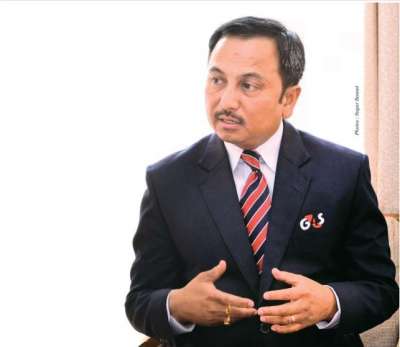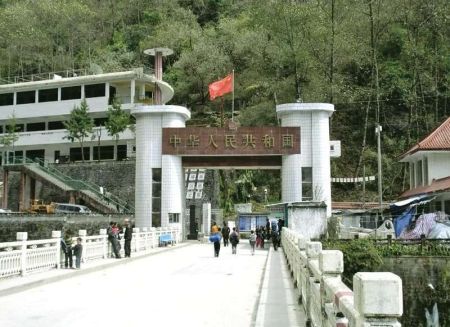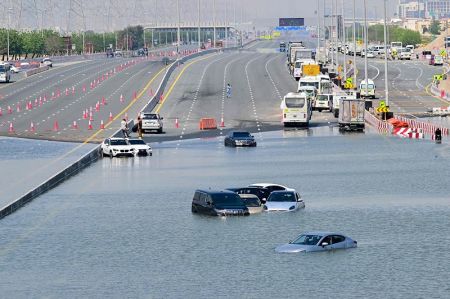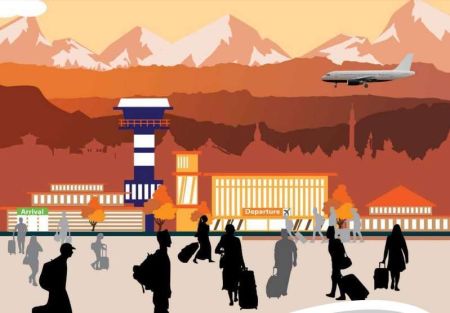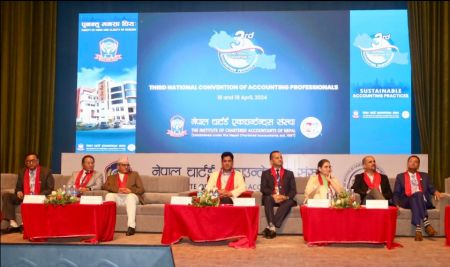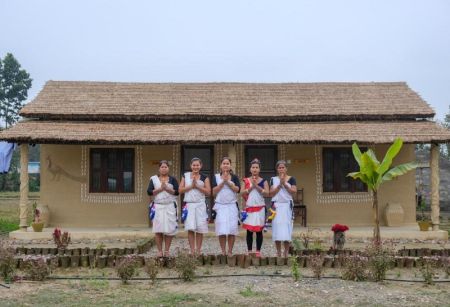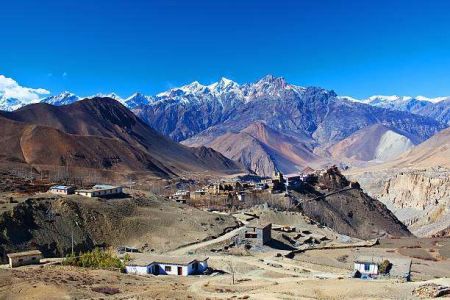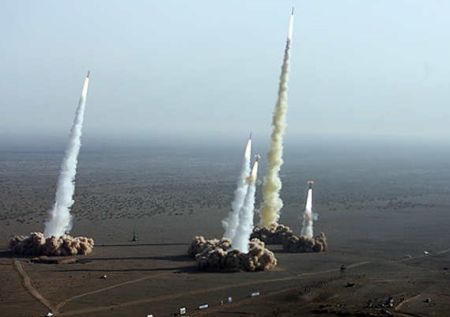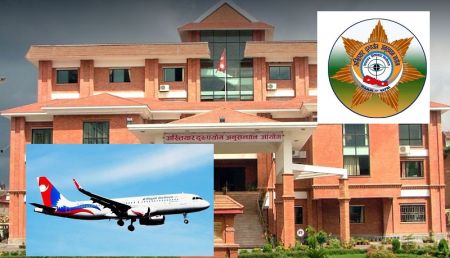‘Tunnel Project Is A Litmus Test For The Private Sector’
.jpg)
Kush Kumar Joshi
Chairman
Nepal Purbadhar Bikash Company Ltd
Kush Kumar Joshi is the Chairman of Nepal Purbadhar Bikash Company Limited (NPBCL) that is to develop the Kathmandu-Kulekhani- Hetauda Tunnel (KKHT) Highway that would substantially reduce the Kathmandu-Hetauda driving distance.
NPBCL will be constructing the 50-kilometre long four-lane highway that will have approximately two 5.5 kilometre long tunnels for oncoming and going traffic between Kathmandu and Hetauda. The company will construct and operate the tunnel road in public-private-people partnership (4P) modality under the Private Financing in Build and Operation of Infrastructure 2006 act. A leading industrialist of Nepal, Joshi is also the Immediate Past President of Federation of Nepalese Chambers of Commerce and Industry (FNCCI), and the Chairman of Liberty Energy, Himalayan Bamboo Pvt Ltd and Managing Director of Nepal Ekarat Engineering Co Pvt Ltd.
In an interview with Gaurav Aryal of New Business Age, Joshi talked about the tunnel project as well as the country’s overall investment environment. Excerpts:

For the first time in Nepal, the private sector is developing a major road project. As the leader of this project, how do you plan to execute it?
It is indeed the first time the government has entrusted a private company with such a big responsibility. It is an honour to share the weight of the government in enriching the lives of Nepali people. The concept of making shortest road from Hetauda to Kathmandu was conceptualised more than 50 years ago. Everyone knows this will be the shortest distance to link these two cities but due to socio-political reasons, the mechanism to construct the road was not finalised earlier. This time around, a new approach of 4P model - public, private and people participation - is taken to revive this initiative. People’s participation in a massive scale is the main strength of this approach. The local people presently have to take a longer route to travel to Kathmandu despite a possible shorter alternative there. This project would be a matter of dignity for every Nepali when it will be completed solely with Nepali resources, technology and management. That is a motivating factor for all of us.
What is the progress towards the financial closure of the project?
The government has granted us this project for 30 years as per the People, Private and Public Partnership (4P) Modality under Private Financing in Build and Operation of Infrastructures 2006 act. The cost of the project is estimated around US$ 350 million and that money is going to be raised from amongst ourselves. Once we complete the feasibility study by November 2012, we will have the concession agreement with the government on technical and financial issues as well as the toll fee.
You have set a timeline of three-and-a-half-years for the completion of the project. As many projects are failing to meet their deadlines, what is the basis of your optimism to meet your deadline?
The main possible hurdles in a project are fund collection, local disturbances and not getting a license. In our case, the government has already granted a license to us not only for DPR but also for execution of the project. The main strengths of this initiative are the local people. The local landowners are ready to contribute to this project by providing their land after a proper valuation. We are not buying the land; instead the value of the land will be treated as their equity investment in the project. Thus the main likely cause of local disturbance is not there.
The other main issue is fund collection. So far, we have received a warm response to our initiative and people are more than willing to invest in such a project that not only has high rate of return but also contributes in developing the infrastructure of the country. This will be the first time Nepali people will be involved in such kind of project. Our people have always been depending on financial support from donor countries, banks or the government. But, this project will make massive mobilisation of people – business community, local people, NRN community and the Nepali workers abroad - for generating funds. Another key component is the Nepali construction companies who will not only be the contractors but also major investors in this mega project. There is plenty of liquidity in the capital and money market but there are not enough good projects for investment. So, this good project will have no problem of funds. And we are hopeful to complete the project within the set deadline.
Disputes on land acquisition and paying compensation have proven major issues while developing such projects. What is the basis for your optimism that your arrangement will work this time?
The modality we have come up with for this project is very unique. As I said earlier, we are not trying to buy land – it is more or less like a barter system and a participatory approach. Before deciding the alignment and making the survey, we had a lot of interactions with the locals and received a commitment from them regarding the project. The most important aspect is that they positively want to see this road built. The local community is ready to invest 75 per cent of the actual valuation of their land to the project and hold 25 per cent with themselves. This is a great step towards making a change. The locals have not just said that they want the road built but they have actually played a significant role in making this initiative a success. And if an existing house is needed to demolish for the road, we are committed to build another house for the owner. This, I think, is beauty or the strength of this entire project.

The KKHT highway is considered a project of national pride and a model to invite foreign investment in infrastructure development. How will this project be able to live up to this expectation?
We have huge potentials in infrastructure. One can see the level of service we are providing to the people in energy, road, drinking water, medical facilities, the basic needs for the people where we need investment whether from domestic or the international investors. The deficit in infrastructure is such huge, domestic investment is simply not enough. But we need to build up the confidence level of investors by providing a guarantee through the policy, political commitment and, most importantly, from the domestic investment. If our project will thrive, it would be a benchmark for other investors to emulate. A successful project such as this will have foreign investors to get interested to work on other projects. This should be a milestone for all Nepalis. I hope that this will surely lure foreign investors to collaborate with local investors and develop the infrastructures in the country.
You have said that the project will return the investment to its investors in six to eight years from the date of operation. Wouldn’t this proposition make the highway a costly road to travel for the general public?
It is going to be a win-win situation for passengers as well as vehicle owners as they will be saving both fuel and time. If a truck or a passenger bus is today making a single round trip a day between Hetauda and Kathmandu, the completion of this road will enable them to make several round trips a day. Instead of four hours, the distance from Kathmandu to Hetauda will be covered in 45 minutes once this road comes into operation. Quite naturally, the frequency of travel will be more and transport entrepreneurs can earn more money besides, of course, saving on fuel. The toll fee will be very low and I am sure the users of this road will find it economical and not just save time but also money.
Do you think that investing in infrastructure will give enough yield to the private sector? What will be the model of investment in your company’s future projects?
First of all, the license granted to us is a historical one. We always talk about the government not giving priority to the private sector and not giving investment opportunity or packages for infrastructure development. This is the first time the government has given a priority project to the private sector. Now, it is our turn to prove that we can do it. If we can do it ourselves, the trust on the private sector will be heightened. This is a litmus test for the private sector to prove that we can do it. For future projects, we may use foreign investment as well as equity based or debt and equity based modality. We will be trying to bring in equity participation for future projects as much as possible. Once this project is completed, NPBCL will become the largest company in Nepal valued at US$ 315 million. A sustainable mechanism and a proven track record will then be part of the company’s resume. We will be hoping for huge projects coming our way and perhaps we could look at large scale storage hydropower projects too. This is going to be the biggest company in Nepal enjoying massive public participation. The ownership will be divided among many people and benefits shared by all.
What are the other similar projects in the pipeline for NPBCL?
The other similar projects coming up include road extension plans from Hetauda to Narayanghat and Hetauda to Birgunj but that will be taken only after the current project completes a whole lap. The traffic from Kathmandu to Eastern and Western Nepal is huge. This project is now envisaged for westbound traffic and people from Far West will travel via this road. Once the proposed new road from Hetauda to Narayanghat is opened, the drive from Narayanghat to Kathmandu will take only one-and-a-half hours. All the traffic coming to Kathmandu via Mugling will be diverted to the newly built road.
This project is to utilise Nepali resources only for its development. Is there a possibility of similar big projects with Nepali investment only?
Many other people are trying to emulate this particular project. For example, the NRN Association has a 100 million dollar fund and they are trying to develop 100 MW hydropower project on their own. Some other companies too are trying to build hydropower projects with Nepali investment only. There are two important bases for the development of a country, one is roads and the other is electricity. Therefore, our next project will focus on energy because there is a lack of storage-based project in hydropower currently. After the success of this project, we will work towards mega storage projects.

What is your opinion on allowing investment abroad from Nepal?
We are observing Nepal Investment Year and trying to invite foreign investment to Nepal. Given this situation, what kind of message will the Nepali and foreign investors get if Nepali investment in other countries is made an option indeed? Having said so, even if we have an opportunity to invest in foreign countries, it must come with certain conditions. The criterion should be – one must be an expert in one’s own field, have good brand recognition at home and willing to expand. Expansion requires investment and in such case, one needs to have a chance to expand and to promote the products and technology in some other country. Ultimately, the benefit should come to one’s own country.
For example, an airline must have its branch in other countries for marketing and promotions. In such a case, one has to invest in foreign countries. Similarly, if you have a good and well-known brand in Nepal and want to export but the cost of competition in other countries may make it not feasible to produce in Nepal and export. Then you should be allowed to produce your own brand in other countries. This will be similar to what multinational companies do. If you have your own brand image for product that is made in Nepal, it will benefit if you establish your factory abroad and promote your own product. But let’s focus on investing within Nepal first.
How do you judge the efficiency of the current FNCCI leadership?
There are a lot of issues, which have scope to be tackled more efficiently by the FNCCI. It looks like they are focusing on the investment year but they must handle local issues first. Given the situation where the fate of the government hangs in the balance one needs to know how the policies are being driven and focus on pressing to bring the full annual budget of the government at the earliest. Similarly, the policies meant to attract foreign investment for the Nepal Investment Year must be established. Priorities on issues like areas of investment and backing up the investment are more important than to celebrate the investment year itself. The investment board has the law and bylaws to backup the investment package and the same will be applied for other investments also. There are a lot of things that FNCCI can do as an apex body of the business community.
Are business prospects for Nepal improving? What are the bottlenecks?
Everybody knows about the prospects Nepal has. We talk about tourism, hydropower, infrastructure and others but the business community has to push the government to create a proper environment and identify the priority projects for investment. The ongoing political turmoil is not giving a good sign to the investors to come to Nepal and invest.
There are three issues – energy crisis, labour issues and unstable government policies. Energy is the prerequisite because without energy, nobody will come to invest here. Labour issues have also discouraged investors. These two things must be prioritised and cleared by the government and the investment board to encourage investment. We also need to have consistent policies. Changes in policies every time there is change in the government will not attract any investments in Nepal. We have been asking the government and the political parties to come up with a common minimum economic agenda. Establishing a common minimum economic agenda will give a positive signal to the investors.
You have been demanding reforms in the public procurement system. Would you please explain it?
The government has to prioritise domestic product. Any company’s first area of business is the local market. Once they have a good position in the local market, they can improve their quality, productivity and be assured about their growth. Having delivered their basic service, they can then think about exporting.
The government has to provide a level playing field for the domestic producers by buying their products, but at the same time it should be monitoring the price and quality as well. At this point of time the government has not been able to accomplish these objectives. The government always seeks cheap foreign products and does not care for the quality. Our argument is, local products do not need incentives instead they need to be promoted so that they can be competitive, qualitative and eventually become export oriented. The government has to give confidence to investors by prioritising the purchase of local products. That is why we are saying that the procurement act has to be revised by making it mandatory to buy local products.


